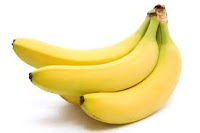 Well, I survived the Tinkerbell Half Marathon! Survived is probably a bit of a dramatic word choice, it actually went quite well. Yay PR! But thinking back there were some things I did right and some things I didn’t. For instance my legs felt my lack of weekly mileage. Although I did a good job of getting in a weekly long training run on most weekends I clearly didn’t do enough shorter training runs during the week. Lesson learned. One thing I feel I got right was my nutrition strategy. I felt well fueled and hydrated before, during, and after the race and didn’t experience any GI discomfort, which is an occasional problem of mine.
Well, I survived the Tinkerbell Half Marathon! Survived is probably a bit of a dramatic word choice, it actually went quite well. Yay PR! But thinking back there were some things I did right and some things I didn’t. For instance my legs felt my lack of weekly mileage. Although I did a good job of getting in a weekly long training run on most weekends I clearly didn’t do enough shorter training runs during the week. Lesson learned. One thing I feel I got right was my nutrition strategy. I felt well fueled and hydrated before, during, and after the race and didn’t experience any GI discomfort, which is an occasional problem of mine.
So I guess now is the time to admit that I am kind of like a kid in a candy store when I’m in the sports nutrition supplement section of REI. I’m not sure why exactly, but I love looking at all the new products and flavors and actually get excited about going on long workouts so that I can use them. Yes, I am a sports nutrition nerd. Others in the field don’t get so excited by supplements, and prefer to use real food whenever possible. So which is better?
 |
| Some of my sports nutrition supplements of choice |
At the Tinkerbell Half Marathon I opted for a sports nutrition supplement instead of solid food, as is usually the case for me. In real (aka not when exercising) life I always prefer food over supplements to meet my nutrition needs but when I’m working hard my stomach just can’t handle solid food. I’ve always believed that there is no real advantage to using a supplement over real food, and that it really comes down to a matter of preference, but others in the sports nutrition field have strong preferences, on both sides of the equation. And there aren’t a ton of studies out there to tell us which is better.
However, a recent study (Nieman, Gillitt, Henson et al.) on cyclists pitted a carbohydrate drink (Gatorade in this case) against bananas during a 75km ride. Researchers found no significant difference in mean power, heart rate, rate of perceived exertion, or blood glucose levels between the two groups. Study participants did report feeling more full and bloated with the bananas however. What does this mean for you? Basically that it comes down to a matter of preference. Your sports performance is unlikely to be improved by your carbohydrate delivery source choice. Your stomach may be affected differently however, so it’s important to test different carbohydrate sources and supplements in order to find out what works best for you.

No comments:
Post a Comment